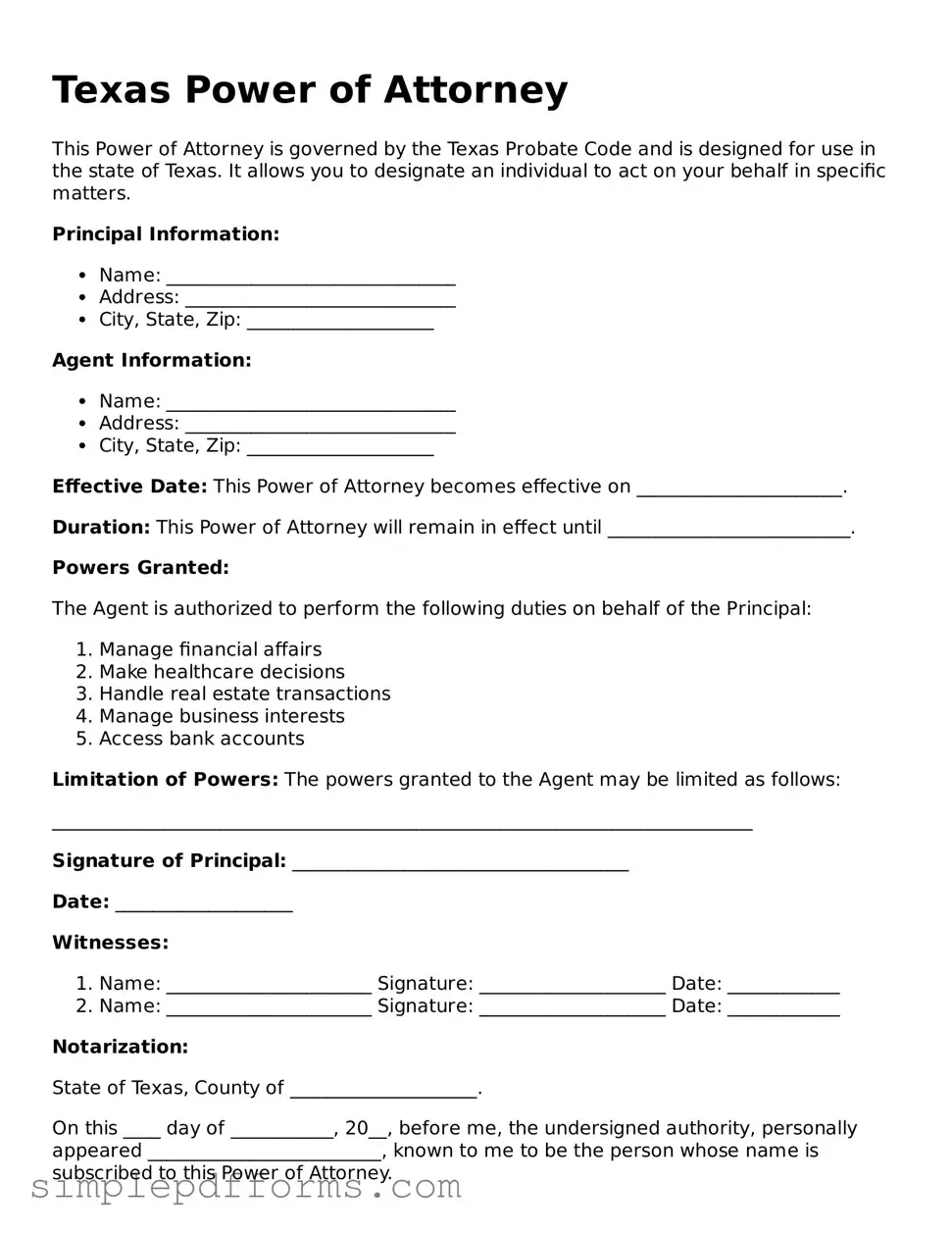Filling out a Texas Power of Attorney form can be a straightforward process, but many people inadvertently make mistakes that can lead to complications down the line. One common error is failing to specify the powers granted to the agent. It’s essential to clearly outline what decisions the agent can make on your behalf. Without this clarity, the agent may not have the authority to act when needed.
Another frequent mistake is neglecting to sign the document in the presence of a notary public. In Texas, a Power of Attorney must be notarized to be valid. Skipping this step can render the document ineffective, leaving your agent without the legal authority to act.
People often overlook the importance of including a date on the form. A Power of Attorney should indicate when it becomes effective and whether it remains valid if the principal becomes incapacitated. Failing to address these details can create confusion and potential legal challenges.
Additionally, many individuals forget to choose an alternate agent. Life is unpredictable, and your first choice may not always be available. Designating a backup ensures that someone can step in if the primary agent is unable or unwilling to fulfill their duties.
Some people may also fail to consider the scope of the powers granted. For instance, granting broad financial powers without any limitations can lead to misuse. It’s wise to specify which financial matters the agent can handle, such as banking, real estate, or investments.
Another mistake is not discussing the Power of Attorney with the chosen agent beforehand. Open communication helps ensure that the agent understands their responsibilities and is willing to accept the role. This conversation can prevent misunderstandings and foster trust.
Many individuals also neglect to review and update their Power of Attorney regularly. Life circumstances change, and what was appropriate at one time may no longer be suitable. Regularly reviewing the document ensures it reflects your current wishes and circumstances.
Some people mistakenly believe that a Power of Attorney automatically grants medical decision-making authority. In Texas, a separate document, known as a Medical Power of Attorney, is necessary for healthcare decisions. Failing to create this document can leave critical health decisions unaddressed.
Another common oversight is not ensuring that the Power of Attorney complies with Texas law. Each state has specific requirements, and using a generic form from another state can lead to invalidation. It’s crucial to use the correct form tailored to Texas regulations.
Finally, individuals sometimes forget to distribute copies of the Power of Attorney to relevant parties, such as financial institutions or healthcare providers. Providing these copies ensures that your agent can act without delay when necessary. By addressing these common mistakes, you can create a more effective Power of Attorney that truly reflects your intentions.

